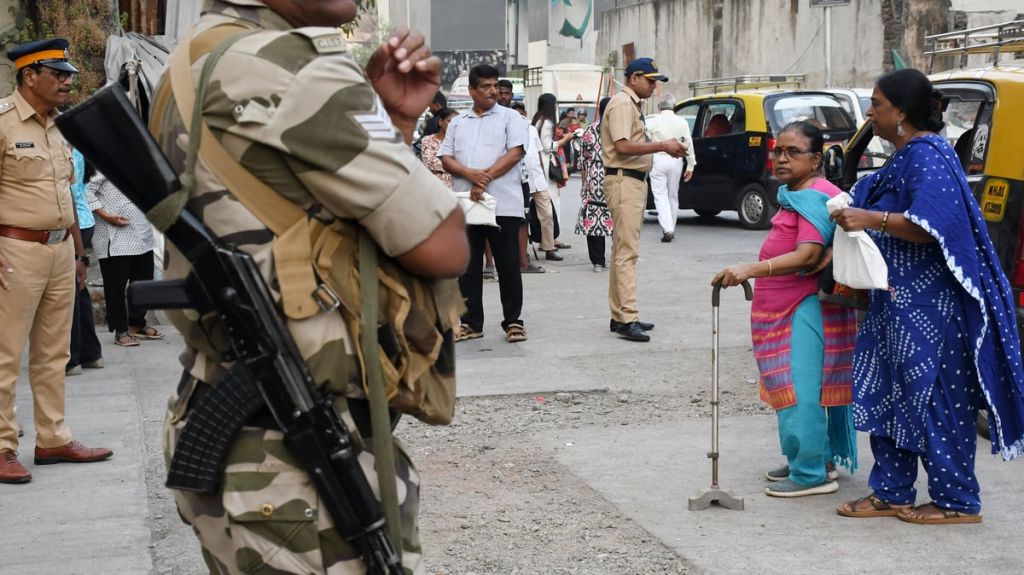
The Vandre constituencies East and West stood out as critical battlegrounds, with Vandre West 55.66% recording a turnout of and Vandre East seeing a marginally lower turnout of 50.36%. These figures, while reflective of modest participation, underscore the sustained electoral importance of these regions.
Shelar vs Zakaria, A Political Rivalry Rekindled
In Vandre West (constituency 177), BJP’s Ashish Shelar is seeking a third consecutive term. A prominent figure in Mumbai politics since 2014, Shelar has been challenged once again by Congress’ Asif Zakaria, marking a continuation of their political rivalry from the previous elections.
Shelar’s dominance in the constituency was solidified in the 2019 elections when he secured 74,816 votes, translating to a commanding 57.11% vote share, defeating Zakaria by a margin of 26,507 votes. His victory in 2014 was similarly decisive, with a 50.93% vote share over Congress’ Baba Siddique.
Despite its urban character and socio-economic diversity, Vandre West struggles with core issues such as urban infrastructure, road safety, housing affordability, and basic amenities. Environmental concerns, particularly regarding coastal development, have also become pivotal in shaping voter sentiment. The constituency, which had 2,97,716 registered voters in 2019, remains a focal point in the BJP-Congress contest.
The electorate’s urban diversity encompassing affluent residents from Pali Hill to working-class communities poses a significant challenge for both candidates. Shelar’s campaign has emphasised infrastructural advancements, while Zakaria has focused on community engagement and addressing grievances of underserved groups.
Vandre East: A Three-Way Contest with Political Lineage at Stake
In Vandre East (constituency 176), the election is witnessing a fierce battle among three contenders, all with political lineage. Zeeshan Siddique, the sitting MLA and son of former Congress leader Baba Siddique, is contesting on behalf of the Ajit Pawar-led Nationalist Congress Party (NCP). Opposing him is Varun Sardesai, nephew-in-law of Uddhav Thackeray, representing the Shiv Sena (UBT) faction under the Maha Vikas Aghadi (MVA). The Maharashtra Navnirman Sena (MNS) has fielded Trupti Sawant, a former Shiv Sena MLA, turning the constituency into a tripartite battleground.
Vandre East, created during the delimitation process, has a diverse demographic profile that includes slums, Dalit and Muslim communities, and a significant Marathi-speaking population. In 2019, Zeeshan Siddique won the seat by a slim margin of 5,790 votes, defeating Vishwanath Mahadeshwar of the undivided Shiv Sena. The constituency, with 2,51,371 voters, recorded a turnout of 50.37% in the last election.
Siddique’s campaign hinges on his youthful energy and focus on developmental policies, while Sardesai aims to leverage the Shiv Sena’s traditional voter base and familial ties to Uddhav Thackeray. Trupti Sawant’s candidacy, though less prominent, has added an unpredictable element to this already volatile race.
The constituencies attracted significant attention due to high-profile voters and security concerns. Bollywood superstar Shah Rukh Khan cast his vote in Bandra, accompanied by his family, amid heightened security. This follows a recent death threat demanding ₹50 lakh, received by Mumbai Police at the Bandra station. Similarly, Salman Khan arrived to vote under a heavy security presence, days after the Mumbai Police arrested a Jamshedpur man linked to gangster Lawrence Bishnoi for threatening the actor and demanding a ₹5 crore ransom.
The constituency also saw appearances from cricketer Sachin Tendulkar, who urged citizens to participate in the democratic process, and Bollywood personalities like Ranbir Kapoor, Gulzar, and Javed Akhtar, who exercised their franchise in Bandra.
In Vandre West, a general category seat within the Mumbai North Central Lok Sabha constituency, the BJP’s Ashish Shelar faces increasing scrutiny despite his previous electoral success. Meanwhile, Vandre East’s multifaceted race exemplifies the broader political shifts in Maharashtra, where alliances are being tested and local issues are influencing voter sentiment.
With 260 polling booths in Vandre West alone, 273 booths in Vandre East, and a total electorate of over 5.49 lakh across both constituencies, the outcome here could offer critical insights into Mumbai’s shifting political allegiances.